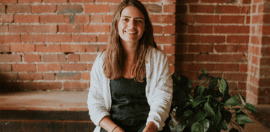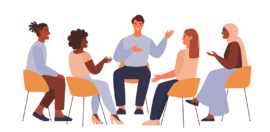Behind closed doors: The migrant and refugee women suffering in silence

6 August 2020 at 6:00 am
COVID-19 has seen a sharp increase in the number of women experiencing domestic and family violence, but advocates say one group in particular is falling through the cracks.
The last thing Jennifer* wanted, was to split up her family.
“I tried to be good. I kept hoping that things would change so that we could be a good couple and stay together so that my daughter could have both a father and a mother,” Jennifer told Pro Bono News.
“But when my husband drinks too much he gets angry and starts throwing things, and I don’t want my daughter to grow up around that.”
When she moved to Australia from Vietnam in 2018, the only people Jennifer knew in the country were her husband and two-year-old daughter. She said this made it a lot harder to leave the relationship.
Being on a temporary visa and having a low level of English also meant she struggled to access any services that could help her out of her situation.
“I didn’t have a permanent residency and I was really worried that I would have to go back to Vietnam with my daughter by myself,” she said.
“I really didn’t want that, because my daughter was born in Australia and I want her to grow up here.”
Jennifer’s story is not unique. A new report by NSW Women’s Safety has found that women from migrant and refugee backgrounds are up against a number of challenges when dealing with domestic and family violence, including language barriers, insecure visa status, social isolation and multi-perpetrator violence.
Read more: The hidden crisis of COVID-19
The report, compiled using survey data from frontline workers, coordinators and service providers, found 60 per cent of respondents reported an increased in violence and abuse against migrant and refugee women related to COVID-19 related stressors (children at home or financial pressures), and 50 per cent reported an escalation of violence during this time.
Half of all respondents also reported an increase in their clients’ fear of deportation due to visa insecurity, and a distrust of authority which meant they did not always feel comfortable calling the police to seek help.
A lack of access to temporary and ongoing accommodation, a lack of free legal services, language barriers and inconsistent police responses were also identified as major obstacles stopping women from seeking support.
These are all things that Jennifer said she had experienced first hand.
She said that while she did contact the police a number of times, language barriers made it difficult to explain what or how bad the situation really was.
Women’s groups unite for change
On Thursday, women’s safety ministers from across the country will meet to discuss the rising rate of family and domestic violence during the coronavirus crisis.
Women’s safety advocates are hopeful the meeting will see immediate changes rolled out that protect vulnerable women from violence.
“We’ve seen during this pandemic that when someone trying to escape an abuser can access specialist service support – it can be lifesaving,” said Hayley Foster, CEO of Women’s Safety NSW.
Foster said that for CALD women, access to income and accommodation supports for temporary visa holders, specialist domestic and family violence interpreter services, and funding for specialist multicultural domestic and family violence case workers were critical first steps.
“We are asking for three fairly simple measures that will offer a literal lifeline to migrant and refugee women and children who are suffering domestic violence,” Foster said.
“Without access to income and accommodation support, these women and their children are being forced straight back into the arms of their abusers.”
For Jennifer, finally gaining access to these services has meant she has been able to leave her abusive relationship.
A pro-bono lawyer was able to secure a permanent residency for her, and Jennifer is now in the process of moving into a women’s refuge until she finds more secure accommodation.
“I wish it wasn’t like this but I feel so much better now,” she said.
“I want other women to stay strong because when they don’t feel stressed or scared all the time it is much better for their health and for their children.”
If you, or anyone you know is experiencing domestic or family violence, call 1800 RESPECT for help. If you are in immediate danger, call 000.
*Names have been changed to protect anonymity







